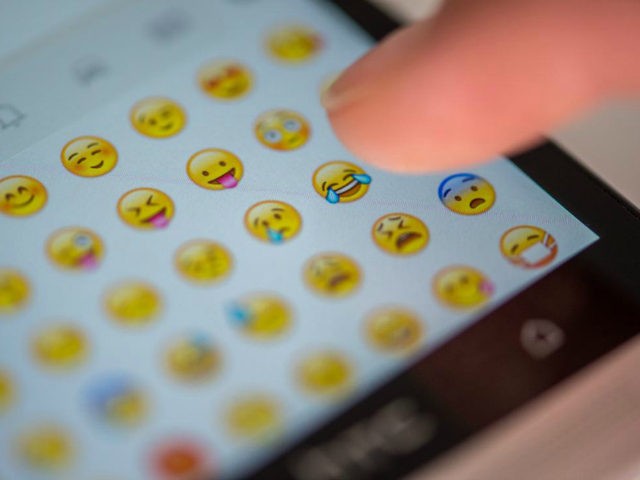The latest report on the censorious appetites of the Internet’s new masters comes from the UK Telegraph, which reports China’s media (which means China’s Communist rulers) are now cracking down on emojis.
Concerns about the language used in widely-shared stickers were raised in an article in the overseas edition of the Communist Party mouthpiece, the People’s Daily.
The article, which was written partly in the style of a named commentary, urged: “There should be regulations on how to use emojis on social networking websites.”
It contained interviews with foreign students who discussed how emojis and user-generated stickers had become part of their learning.
Stickers are incredibly popular in China and are shared more than 20 million times a day on messaging app Wechat, a company spokeswoman told Shanghai based news outlet Sixthtone.
But some stickers and emojis use slang terms which can confuse users, the People’s Daily article said, and experts called for tough measures against those with more extreme content.
Well, we certainly wouldn’t want citizens to be “confused,” would we? Luckily, authoritarian regimes always have a Ministry of Clarity ready to step in and tell everyone what to think about everything.
A Chinese researcher complained that emojis can have “pornographic, violent, negative, and unhealthy content,” while some “even violate laws and should be firmly opposed.”
Firm opposition is an endlessly renewable resource in China. In the Western world of the not-too-distant past, there were spirited legal arguments over the definition of pornography, with serious concerns that it could become an all-purpose cudgel for beating down free speech. “Negative” and “unhealthy” are terms so suggestive and politically malleable that they look like Thor’s hammer next to the pornography cudgel.
Along those lines, the Telegraph mentions Chinese authorities have vowed to crack down on social media and entertainment that promotes “Western lifestyles” and lacks “positive energy.” One suspects criticism of the Chinese Communist Party will be found universally lacking in positive energy. Frankly, we already hear that kind of argument in the United States, when critics of the party in power are accused of “running the country down” with their criticism.
“The officials are just too free and they want to find something else to do,” a Chinese social media user quoted by the UK Daily Mail keenly observed.
Chinese social media platforms are quoted in the Telegraph and Daily Mail articles protesting that they already control for vulgarity, violence, and sexual content, but those bureaucrats will find more to do and not just because they are bored. Getting the populace of the Internet accustomed to more control and more restricted speech is a top agenda item for authoritarians of every stripe.
As control of the Internet becomes global, so too will the rest of the globe’s interest in censorship infect Western societies. International companies will have an incentive to comply with the most restrictive regimes because such compliance is unlikely to cost them access to the more permissive markets. If there’s a “canary in the coal mine” emoji, now would be a good time for China’s users to break it out.

COMMENTS
Please let us know if you're having issues with commenting.